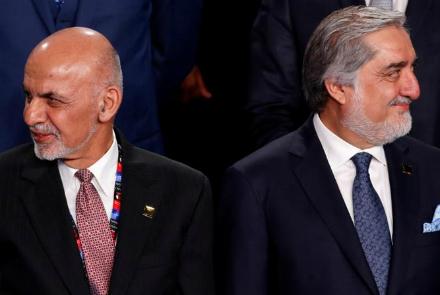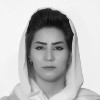Officials from the Independent Electoral Complaints Commission (IECC) on Tuesday rebuked candidates for making premature judgements on election results, saying those candidates who claim victory early are in violation of election law.
Premature claims about the election process could damage the trust of the public, said commissioners.
This comes a day after Chief Executive Abdullah Abdullah, a three-time presidential contender, appeared at a press conference in Kabul and said his team will form the next government as they have received the highest number of votes.
“Our vote count is the highest in the election, and the election will not go to a second round,” Abdullah said, adding that his team will form the next government.
He thanked the people for their participation in the election and said “our people voted in the election against dictatorship and discrimination.”
In response, President Ashraf Ghani’s running mate for first vice president, Amrullah Saleh, stated that by law it is only the election commissions that can announce the winner.
“I call on all the other honorable candidates to stop their street judgments and let Afghanistan--like other civilized nations of the world--have a formal judgment by the institutions that are authorized to issue the verdict, which is the Independent Election Commission and the Electoral Complaints Commission,” said Saleh.
Not only the commission, but also independent election observers, have suggested that candidates avoid making premature claims.
“There is a possibility that none of them will win the election, but there should be efforts to avoid the repetition of the election experience that we witnessed in 2014, because this will challenge the people’s will,” said Naeem Ayoubzada, head of the Transparent Election Forum of Afghanistan (TEFA).
“Only the election commission has the authority to announce the results: partial, preliminary, and final,” said legal expert Khalid Noor.
Another candidate, Noorullah Jalili, meanwhile said that those campaigns which have claimed victory in the elections are in fact trying to push the process towards a crisis.
“Any team that claims victory before the election results are announced, we consider to be taking hostages,” said presidential candidate Sayed Noorullah Jalili.
But controversy over biometric and paper votes—both were used—have led Abdullah’s campaign to preempt the commissions’ final decision In an attempt to influence how the count itself is made. Abdullah Abdullah expressly stated on Monday that he considered biometrically-tallied votes to be “pure” votes, and not paper votes, because the ID verification system of the biometric devices “can mitigate mass fraud.”
So, apparently It is biometric data that gives Abdullah’s campaign its confidence. “The data gathered shows that our team is on the top of the list,” said Bashir Ahmad Tayyanj, a member of Abdullah’s Stability and Convergence Campaign.
Ghani’s team, while not making a victory claim, also suggest that the data they have seen is encouraging for their campaign.
“A large part of the results were available to our observers and all of them were transferred to the centers; it indicates we have achieved a significant amount of votes,” said Najib Danish, spokesman for the Ashraf Ghani’s led State Building campaign.
Other campaigns have also declared they would be winners if the votes were counted with transparency.



Comment this post